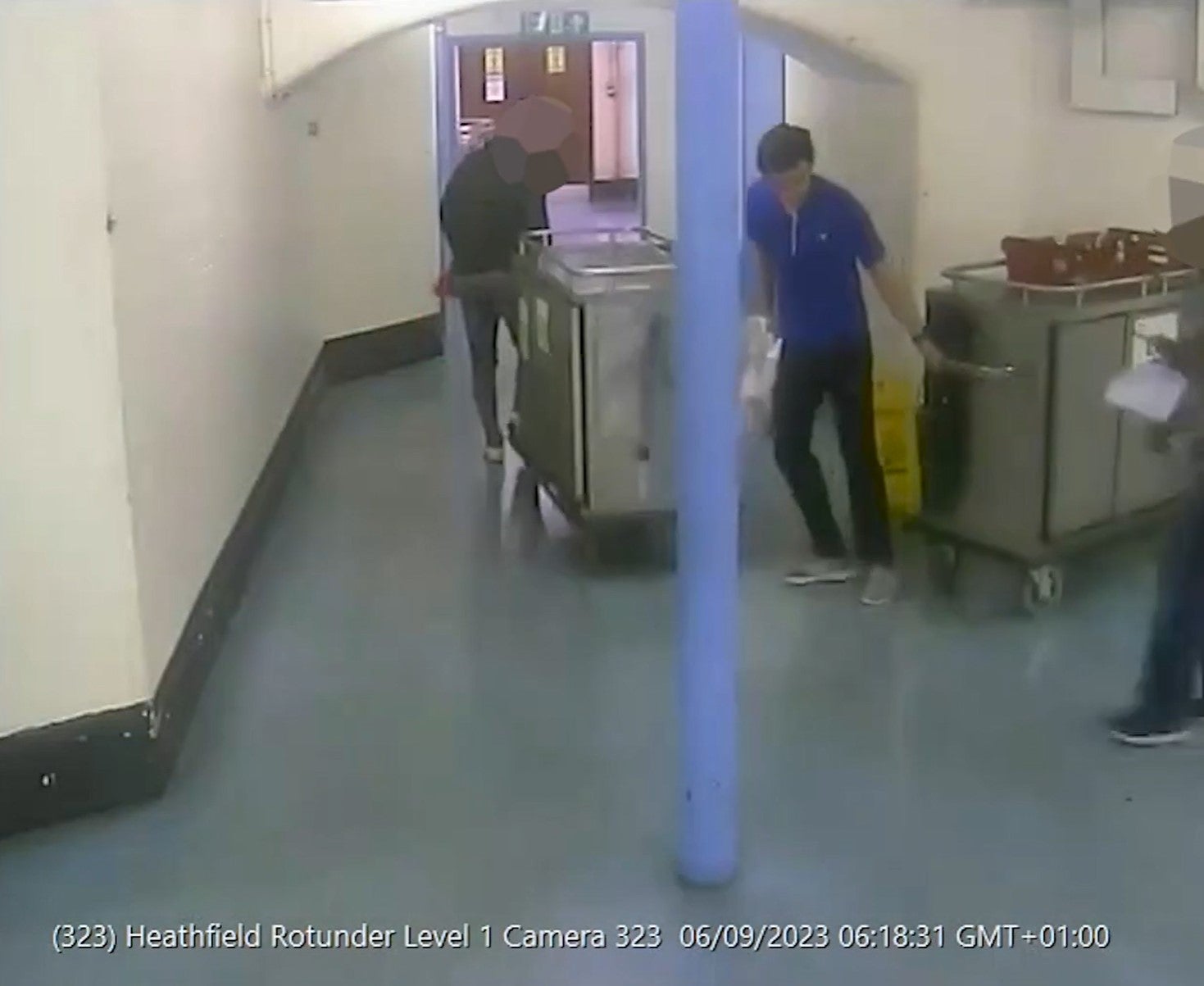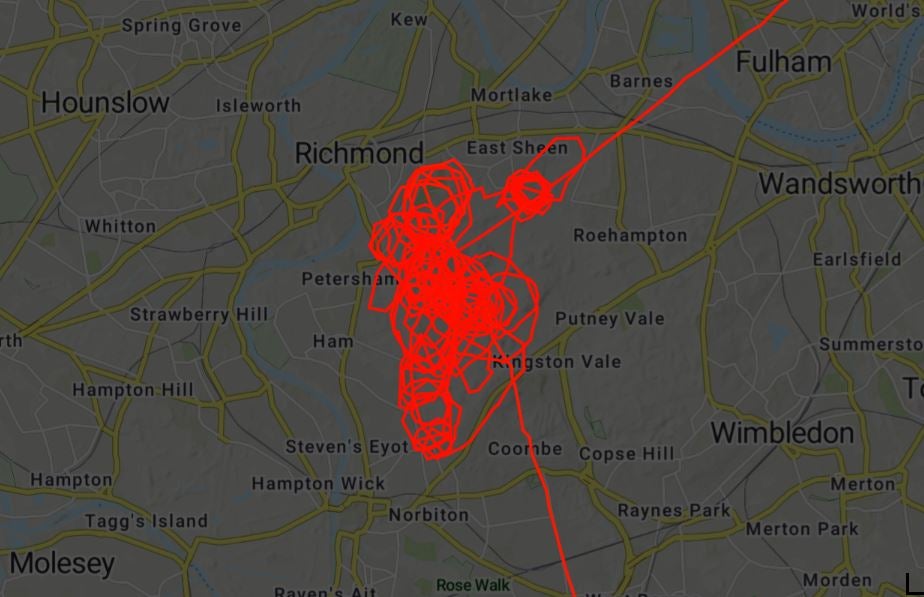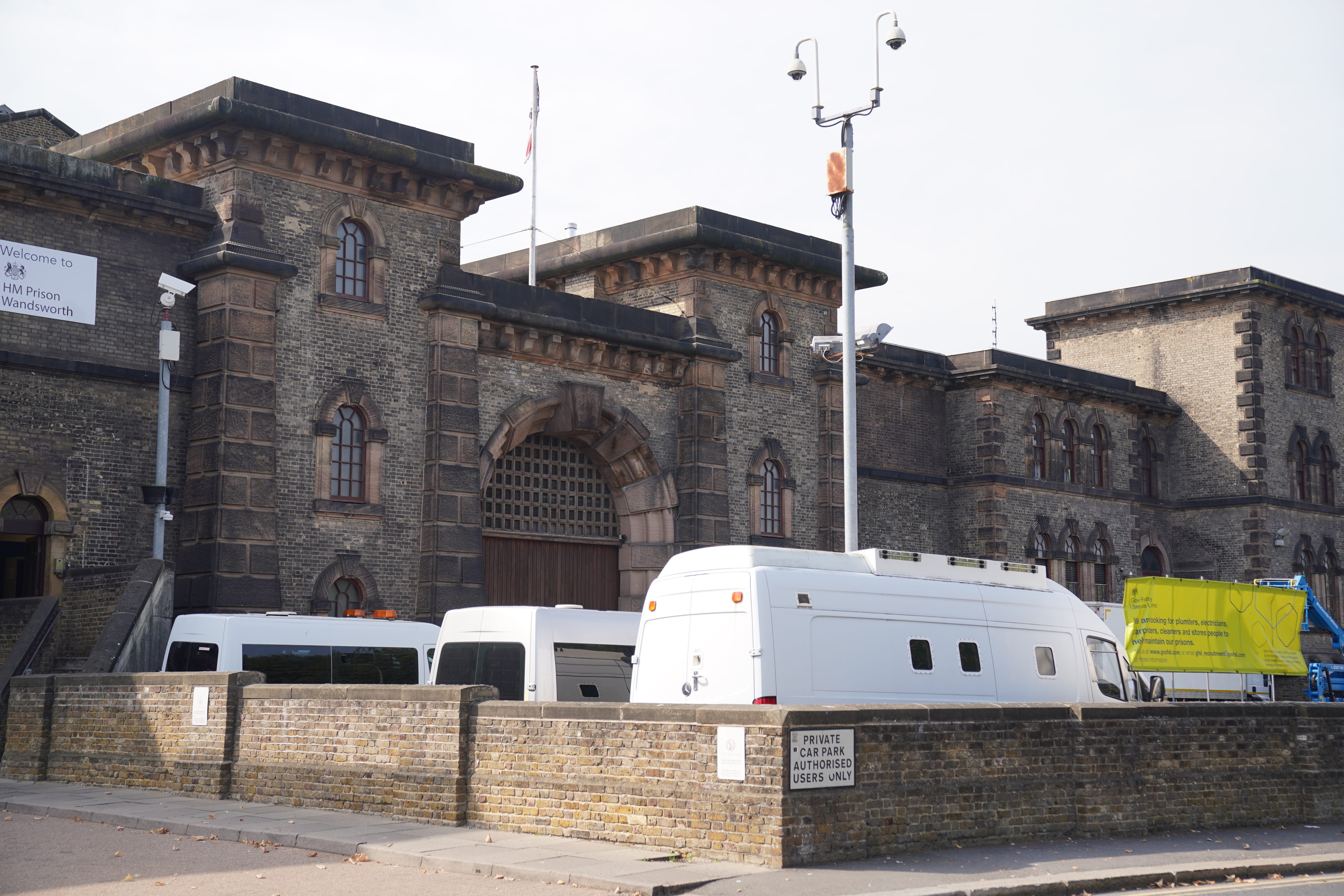A 75-hour nationwide manhunt involving police dogs, scores of officers and search helicopters gripped the nation when Daniel Khalife escaped from HMP Wandsworth last year.
Across the country and beyond, people intently followed the highly-publicised search as officers closed in on the former soldier, who shopped at Marks & Spencer, drank coffee at McDonald’s, and stole a hat from Mountain Warehouse during his time on the run.
The 23-year-old – who even the Metropolitan Police acknowledged showed “ingenuity” – was eventually captured by the River Thames in west London on 9 September 2023, when he jovially offered his congratulations to the arresting officer.
More details of Khalife’s four days as a fugitive emerged during his trial at Woolwich Crown Court, where he pleaded guilty to the escape partway through proceedings.
Khalife was also accused of collecting secret information and passing it to agents of Iran while serving in the Royal Corps of Signals. The jury on November convicted Khalife of breaching the Official Secrets Act and Terrorism Act, but he was acquitted of perpetrating a bomb hoax.
On Monday, Khalife was sentenced to 14 years and three months at the same court by a judge who condemned him as a “dangerous fool” who was motivated by a “selfish desire to show off”.

It transpired over the seven weeks of his trial that Khalife snuck out of the Category B prison in south-west London by clinging to the underside of a food delivery truck using a makeshift sling, which he had attached five days beforehand.
Khalife revealed to the court that the main reason he fled was because he wanted to be kept in a high-security unit (HSU) at a different prison where he believed he would be safer, away from “sex offenders” and “terrorists”.
He explained that he had planned a fake escape attempt for 21 August in the hope he would be moved to the HSU at HMP Belmarsh – a prison within a prison holding some of the country’s most dangerous criminals – but decided that a genuine escape was his only option after the incident was not reported to senior prison staff.

Shortly after 7am on 6 September, Khalife was escorted from his cell to the kitchen area of the prison where he worked.
The lorry, driven by Balazs Werner, left the prison through a gate leading on to Heathfield Road at 7.32am, with Khalife clinging onto the sling made from kitchen trousers and carabiners between the chassis rails.
A woman driving behind the lorry spotted a man emerge from under the vehicle after it stopped at traffic lights in Trinity Road. He then walked “slowly and casually towards the nearest pavement”, Skye Vokings said.

During a routine headcount, HMP Wandsworth staff were unable to find Khalife and realised he was missing, notifying police at 8.18am.
More than 150 Met Police officers and staff, as well as colleagues from forces across the country, subsequently worked “at pace around the clock” in pursuit of the terror suspect, receiving over 100 calls from members of the public and offering a £20,000 reward for information.
The Bidfood van was stopped and searched by police just after 8.30am on the Upper Richmond Road in Putney. Officers discovered the strapping used by Khalife in his escape on the bottom of the vehicle.

“When the tail lift raised it covered me entirely,” Khalife told the court. “If the makeshift sling wasn’t noticed, they’re hardly going to notice me.”
CCTV footage seen by jurors showed Khalife that afternoon in Whittaker Avenue, Richmond, wearing an olive green shirt and shorts. He entered a Mountain Warehouse shop, picked up a blue cap and put it into his bag before walking out.
Khalife later walked along next to the river and on a towpath towards Richmond Bridge.

Commander Dominic Murphy confirmed that on the evening of his escape, police had conducted an intelligence-led search at a residential property in the Richmond area.
At 8am the following day, the escaped prisoner walked into a Marks & Spencer store in Kew and bought clothes using cash.
Shortly after 10am, he walked into a shopping centre in Hammersmith and went into a Sainsbury’s wearing a face mask.
At around 11.20am, Khalife then bought a mobile phone for £89 from a shop in King Street, Hammersmith.
Richmond Park was scoured by police overnight and into the following day, with helicopters seen circling overhead and sirens blaring in the area for hours.
On 8 September, the former soldier visited a newsagents in Chiswick and bought a newspaper soon after 8am.

Police helicopters spent that night circling around the Thames in west London, with flight radar maps revealing one flying repeatedly over Chiswick House and Grove Park.
The force then said that it would be focusing its search in Chiswick on 9 September after confirmed sightings in the area overnight.
On the morning of his arrest, Khalife walked into a McDonald’s and bought an espresso, before also going to the toilet where he changed his clothes.

Just before 11am, a mere 45-minute drive from HMP Wandsworth, Khalife was arrested on a canal towpath in Northolt, with a mountain bike, a Waitrose bag with a phone, receipts, a diary and about £200 in notes, the jury was told.
A plainclothes detective sergeant told the court he “jumped out” of his car and “ran down an alleyway to the canal” to find Khalife. Asked about his demeanour, the officer said: “He was friendly towards me. Quite jovial. He was pleasant. He congratulated me on catching him.”
After four days and nights on the run, he was taken into custody.

It is understood that Khalife was never returned to Wandsworth prison but instead was locked up in a category A high-security prison in London as a consequence of his actions. On 21 September, he appeared at the Old Bailey via video link from HMP Belmarsh when he initially denied all charges. It was to be transferred to HMP Belmarsh that was the reason why he claimed he had escaped prison in the first place, suggesting that, despite his capture, he might still be viewed as having succeeded.
In a report published last year, HMP Wandsworth’s Independent Monitoring Board (IMB) said an audit found 81 security failings at the scandal-hit jail in the wake of the escape, while an internal review made 39 recommendations.
The IMB said the incident led to multiple reviews and action, including “previously unavailable funding” being found for security improvements and “significant investment” in a bid to stop illicit items being taken into the prison.







